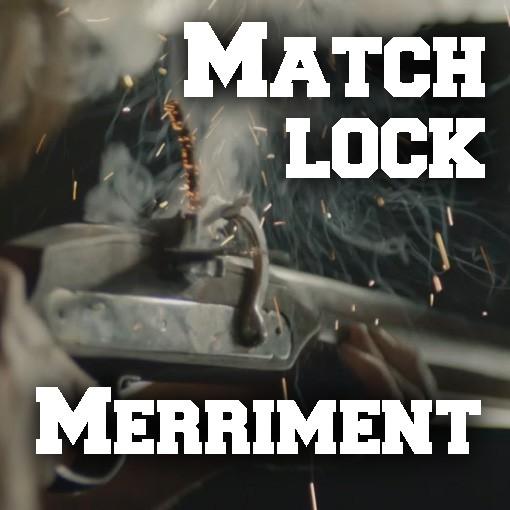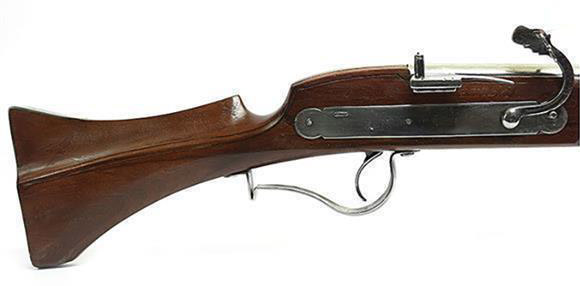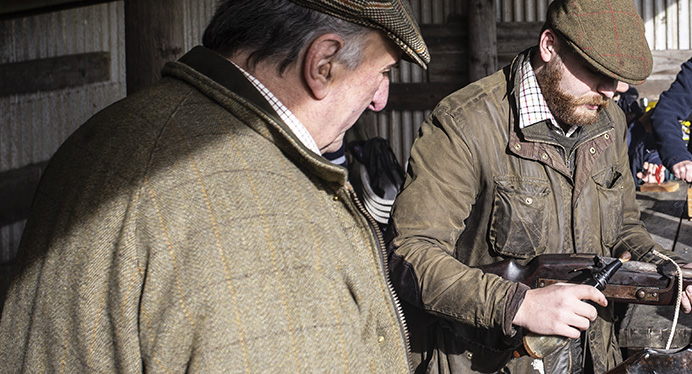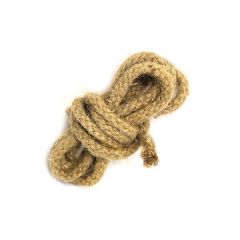We use cookies to make your experience better. To comply with the new e-Privacy directive, we need to ask for your consent to set the cookies. Learn more
Matchless Matchlock Muzzle Loading Merriment
Anyone who knows me will tell you I'm rather biased when it comes to matchlock guns. I can see how technology has progressed and made matchlocks obsolete, but that doesn't mean they're useless, and I can't for the life of me figure out why they're not more popular. Matchlock muskets are as accurate as flintlock or percussion, and can have a very quick lock time. They are very basic guns, with next to none of the refinement of later percussion guns, but they are reliable and fun to shoot and are always a head turner at the range.
Matchlocks experienced their heyday in the 17th century, and were popular during the English Civil War, before more 'reliable' doglock and flintlock actions took over. That was pretty much it for the match ignited small arm in Europe, though match cord continued to be used to fire cannon and as a backup ignition system for field guns and shipborne artillery until well into the 19th century. The matchlock was still in use by Japanese forces well into the 19th century, and Japanese matchlocks (or Tanegashima) are highly desired by collectors today.
If you've never considered a matchlock musket before, read this blog. If you've got a shotgun certificate, consider adding a matchlock to your collection. If you don't, we also offer them as an inert item that you don't need a certificate for. There's an option for everyone.
How does a Matchlock Musket work?
A matchlock works by dunking a piece of lit string (the match) in a pan of powder. Simple as that. There's two methods commonly used, the serpentine lock and the snaplock. A serpentine matchlock holds the match in a long arm (the serpentine), which is connected to the trigger. Pulling the trigger moves the serpentine and match towards the pan. A snaplock works more like a flintlock in that the serpentine can be cocked, and is then released under spring pressure when the trigger is pulled, this style is most common in Japanese matchlocks.
Are Matchlock Muskets hard to load?
Not really, though it requires quite a bit more care than percussion or flintlock. Unless you're going to extinguish the match every time you want to reload, which is a pain, you must absolutely keep the match away from any possible source of ignition.
They're also a bit temperamental regarding priming powder than flintlocks, the finer the better. Other than that, they're the same to load as any other muzzle loading gun.
Are Matchlock Muskets hard to shoot?
This is a bit of a controversial question. I personally don't think they're any harder to shoot than a flintlock. The firing procedure looks a lot more aggressive to the shooter than it actually is. There is a lot of flame and smoke, but as the shooter, it simply happens and then it's done. When loaded properly, the matchlock can have a very fast lock time, I'd argue they can be made to be quicker than a flintlock and comparable to a percussion gun.
What can I use a matchlock musket for?
Anything you'd use any other muzzle loader for! They're good for target shooting, as with practise they can have a very quick lock time, and are more reliable than flintlocks. You can also use them for clays, which is fun but quite difficult.
Is a matchlock, a flintlock or a percussion gun better?
This comes down to personal preference. I have both flintlock, matchlock and percussion and I find matchlock to be the best. It isn't as rainproof, which was a massive consideration for militaries and sporting shooters in times past, but perhaps not so much of an issue today. Matchlocks are less reliable in the wet, due to an open pan and constantly burning string, but how many of us are going to stand in the driving rain shooting percussion or flintlock anyway?
As I've mentioned, matchlock guns can have a very quick lock time, and I've successfully shot clays with a matchlock musket, whereas I find myself often behind with flintlock. As far as target accuracy goes, it's a musket, and a musket ignited by matchlock, flintlock or percussion is going to be broadly similar. That said, with consistency and patience, they can be made to shoot accurately.
How can I buy a matchlock musket?
To buy a live firing matchlock musket, you will need a shotgun certificate. If you'd like to buy one, give us a ring on 0113 256 9163, or order through your local firearms dealer. We also sell inert matchlock muskets, which can be ordered online and sent straight to your door without needing any certificate, click here to order.




